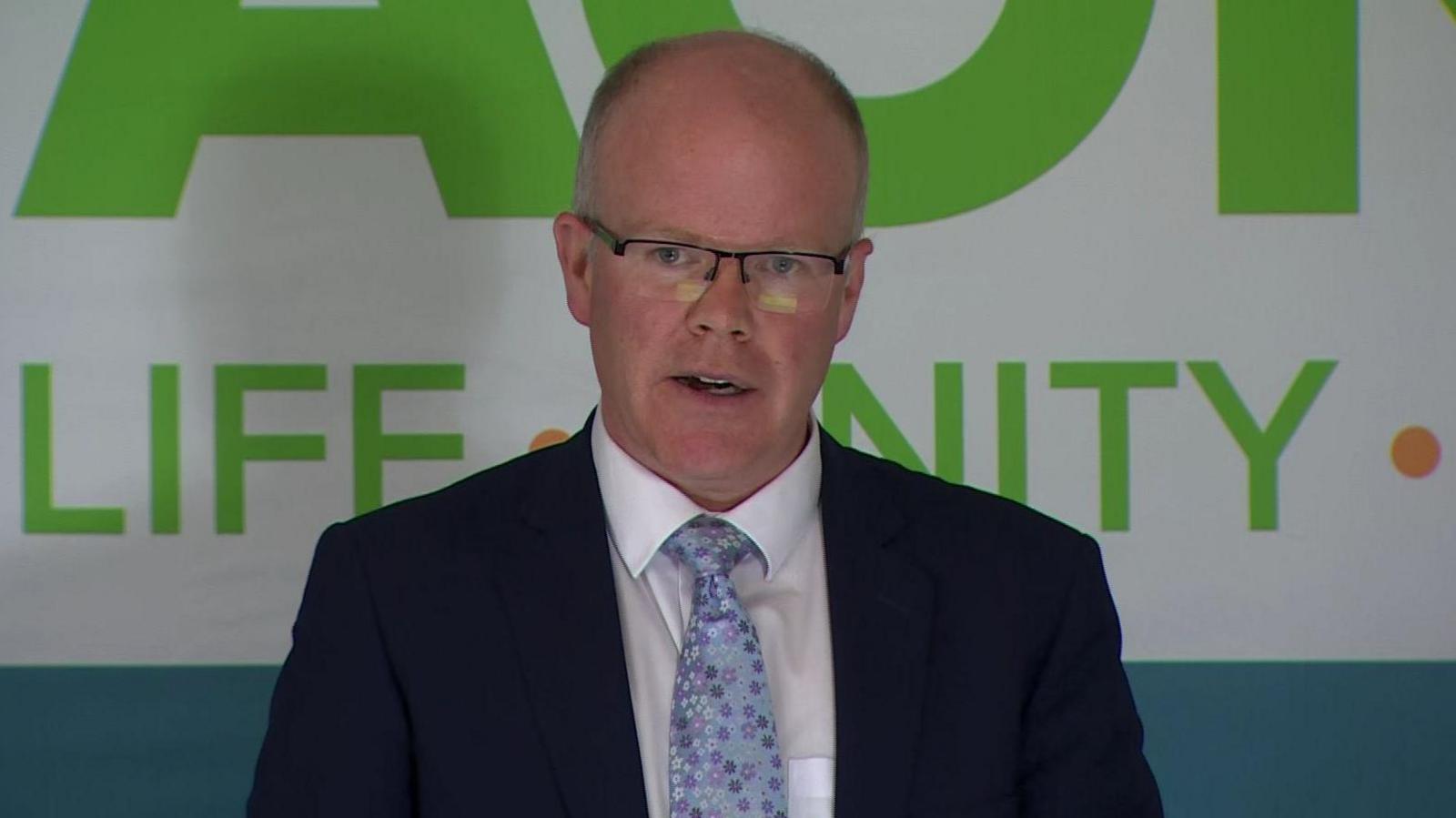NI an 'accountability-free zone', Aontú leader says

- Published
Northern Ireland is an “accountability-free zone”, Aontú leader Peadar Tóibín has said.
He was speaking at the launch of the party's manifesto for the UK general election on 4 July.
Aontú is fielding candidates in 10 constituencies in Northern Ireland.
Its proposals include reforming Stormont's devolved institutions and managing immigration on the island of Ireland with an "Irish Sea border for people".
Mr Tóibín said a "political cartel in existence in the north" has resulted in a "significant downward pressure" on public services.
Speaking at the manifesto launch in Belfast, he said that "many of them would rather talk about the green and orange forever".
"But we are delighted to be able to crowbar those bread and butter issues back into the election cycle here in the north and to give people a real, honest alternative when they go to the ballot boxes on Thursday," he said.
Mr Tóibín said the "north of Ireland is an accountability-free zone", pointing to the Lough Neagh blue-green algal crisis of 2023.
He also called for a change in immigration laws, saying that "we need compassion and we need common sense".
Mr Tóibín proposed an "Irish Sea border for the movement of people" while retaining the Common Travel Area for British and Irish citizens.
Northern Ireland's power-sharing executive and assembly were restored in February after a two-year hiatus.
Mr Tóibín said that "now is the time to reform the Stormont institutions - not when the next crisis starts".
The Aontú leader also said his party would "bring to an end" the Bengoa Report - a 2016 review of Northern Ireland's health service.
He argued the report was "leading to a further centralisation of hospital services which is creating awful damage".
It is the second time Aontú, which was founded in 2019, has contested a Westminster election.
A total of 136 candidates are standing across Northern Ireland's 18 constituencies in the general election.
What is in the Aontú manifesto?
Some of the party's manifesto commitments include:
Reform of Stormont's devolved structures to stop any one party collapsing the power-sharing institutions.
Devolution of corporation tax, excise duties and fuel tax.
On immigration, the development of an "Irish Sea border for people" while "protecting" the Common Travel Area.
Opposition to elements of the Bengoa Report on changing Northern Ireland's health system.
A "new Ireland forum" for cross-border discussions on developing an "all-Ireland economy and all-Ireland institutions".